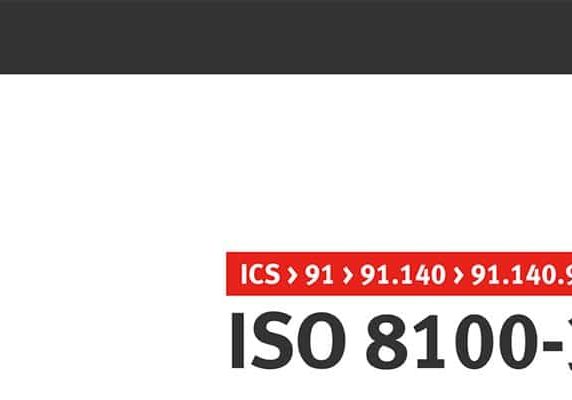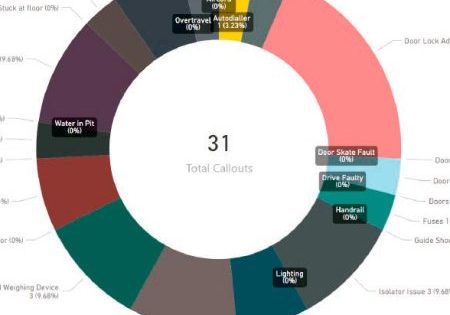UoN offerings are detailed.
by Oliver Greening
Almost two years in the making, the updated Lift & Escalator Technology programmes at the University of Northampton (UoN) were approved in December 2020. In this Industry Dialogue, Dan Charlesworth (DC), training and safety manager at the Lift and Escalator Industry Association (LEIA), provides background to your author (OG).
There is seamless progression from certificate through hnc to hnd, building upon the academic knowledge and skills acquired throughout a student’s studies.
OG: Can you tell us about the new Lift & Escalator Technology programmes?
DC: LEIA has been working closely with UoN to develop a new Lift and Escalator Technology Level 4 certificate to form a bridge for those starting out in the industry to complement the university’s refreshed and updated Higher National Certificate (HNC) and Higher National Diploma (HND). This development demonstrates a refreshed relationship, which underpins the desire to ensure longevity of education materials for our industry. LEIA and UoN are also working on further development of the HNC and HND programmes. With our combined expertise, we’re delighted to offer programmes that will keep learners up-to-date with how the industry is working, what’s new and what’s changing.
OG: To whom are they targeted?
DC: The certificate in Lift & Escalator Technology complements, and is intended to be undertaken, after LEIA’s Introduction to Lift Technology. It provides underpinning electrical and mechanical engineering fundamentals on which lift and escalator technology is based. The certificate is aimed at those new to the industry and can be a useful refresher for those who have been in the industry for some while, but wish to further develop their industry understanding.
The certificate consists of three modules:
- Fundamentals of Lift Technology (based on LEIA’s unit)
- Electrical Fundamentals for Lift and Escalator Technology
- Mechanical Fundamentals for Lift and Escalator Technology
The certificate includes two new modules looking at underlying principles needed for those in a Lift and Escalator Apprenticeship program.
OG: What qualifications will they receive at the end? What are the learning outcomes?
DC: The new 60-credit Certificate of Lift & Escalator Technology leads to a university certificate from UoN. Learners can then seamlessly continue their studies by taking the university’s HNC in Lift & Escalator Technology. This is a recognised qualification made up of a combination of UoN and LEIA Lift Technology modules. It is aimed at students who require a broad, but complete, academic qualification in lift technology.
Similarly, a further progression to an HND in Lift & Escalator Technology is available. This is a well-recognised qualification made up of a combination of UoN and LEIA Lift Technology modules. It is aimed at students who require a more in-depth, vocationally based academic qualification equivalent to the first two years of an Honours Degree. There is seamless progression from certificate through HNC to HND, building upon the academic knowledge and skills acquired throughout a student’s studies. All programmes are delivered and studied by online distance learning, thereby providing flexibility in accessing and studying the learning materials and assessments.
Each of the programmes (certificate, HNC and HND) has programme aims and learning outcomes that progressively build from certificate through HNC to HND. These are available in the separate programme specifications for each of the awards (available from the university website, northampton.ac. uk).
The overall programme aims, building to HND, are to provide the opportunity to:
- Gain an understanding of the fundamental and advanced engineering principles on which lift and escalator design, manufacture, installation and servicing are based.
- Relate engineering principles to relevant codes and standards.
- Enable students to appraise the engineering and commercial basis of the industry with respect to straightforward engineering design specifications, codes and standards.
- Allow student to independently research aspects of the industry through a project and case study.
- Allow students to acquire, through self-learning and study, skills appropriate to further study and subsequently continue professional development within the industry
OG: How long do the programmes take, and how do candidates apply/qualify?
DC: All three modules for the certificate can be studied together, which means enrollment to final exam can be achieved in under a year. There is also an option to select one module at a time, depending on a work/life study balance, which would extend the completion time.
There is a time limit on completing the HNC of four years and, for the HND, six years from first enrolment. Due to the logical and progressive overlap in modules, the programmes provide a seamless progression opportunity. The HND provides a gateway for direct entry to the BSc Engineering Top Up and, ultimately, the MSc Lift Engineering programs at UoN.
OG: What’s covered in the programmes?
DC: All Lift Technology programmes are modular. They consist of modules delivered and assessed by UoN through LEIA. These modules may be studied in any order. However, there is a logical progression from certificate through HNC to HND.
All programmes are delivered through distance learning (online), so no physical attendance is required. The programmes are, therefore, flexible and have been designed for those working within the industry.
In the programmes, students will learn the fundamental principles relating to lift and escalator engineering, which will enable them to relate to practical experiences in the workplace.
Individuals who have already attained LEIA modules that are used in UoN’s awards programmes can use their LEIA-awarded certificates to gain credits without the need to retake these elements.
The modules cover fundamentals of electrical/electronic and mechanical engineering, lift technology, applications and codes, engineering design and other specialised aspects of advanced lift and escalator technology. Contract management is also included as a work-based project and case study for those progressing to HNC and HND.
Coursework is used to assess specific learning outcomes and provide the opportunity for the student to develop transferable research, communication, problem-solving, presentation and time-management skills. The assignments are often related to real-life situations, and are, therefore, an important learning activity. The assessment profile for each module has been chosen to ensure that the assessment pattern is the most efficient method of ensuring the student achieves the learning outcomes.
The modules and programmes are supported in UoN’s virtual-learning environment by a team of dedicated and expert tutors who have vast experience working within the industry and delivering distance-learning programmes. Students will have access to dedicated tutorial support, and elements of the modules will be delivered in virtual online classroom sessions scheduled to suit students’ needs. Students will also have access to the full range of UoN facilities, including the most recent online resources such as e-books, journals and British Standards.
Get more of Elevator World. Sign up for our free e-newsletter.






